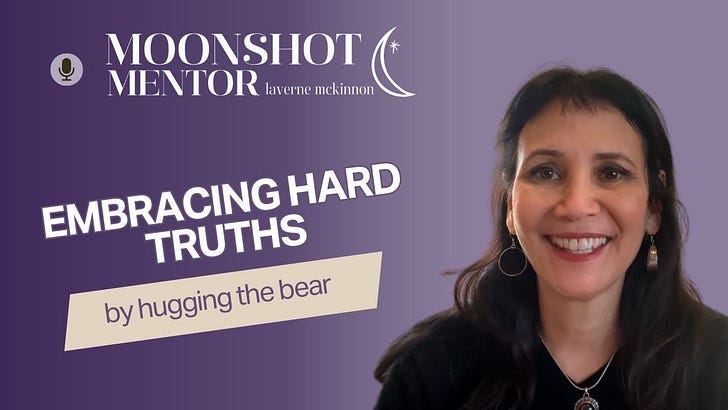We've all been there—setting goals, fueled with enthusiasm, only to find ourselves stuck in a web of unmet expectations. Goal setting can be like navigating a maze blindfolded; sometimes, you hit dead ends. But that's absolutely okay. In fact, making mistakes while goal setting is not just normal; it's practically a rite of passage.
It all starts with setting a goal, carving out a plan, and diving in headfirst.
But sooner or later, you realize that somewhere along the way, you took a detour. Maybe you aimed too high, too soon, or perhaps you didn't break down your aspirations into manageable steps.
Each wrong turn is a chance to recalibrate, reassess, and come back stronger. So, if you've ever felt a twinge of frustration, a hint of disappointment, or even considered scrapping a goal altogether, you're not alone.
Let’s explore the terrain of seven goal-setting blunders and learn how they can be your secret weapon in moving forward.
Mistake One: Not breaking goals down into long, mid and short-term goals.
Take “Ben,” a talented screenwriter who wants to direct. Ben has been at it for about three years and is so defeated he’s ready to move home to Omaha. He didn’t understand that becoming a filmmaker is a long-term goal with a lot of mid and short-term goals that need to be achieved to get him across the finish line.
A bit of background: It took Ben a few years to realize that being a filmmaker was truly his dream so when he finally moved past the saboteurs who told him he would never make it, he was ready to hit the ground running.
What he didn’t realize is the path to shooting a full-length feature film is years in the making even for established filmmakers. He thought he could make it happen within 12-18 months --- which felt like a long time to him.
Ben thought he could go from zero to sixty by bypassing key steps and that stalled him out. When we took the time to breakdown the long-term goal into mid and short-term goals, he understood why he was feeling defeated.
After he licked his wounds and double-downed, we created a strategic plan. Here are the broad strokes of his long, mid and short term goals:
Long-term goal: Direct a full length feature film
Mid-term goal: Identify a full-length feature script to direct, attach talent, secure financing (each of these goals requires dozens of short-terms goals and actions steps.)
Short-term goal: Establish himself as a filmmaker by directing a short (also requires dozens, if not hundreds, of small action steps to achieve.)
Mistake Two: Treating long-term or mid-term goals like short-term goals.
Let’s continue with Ben. When Ben was initially pursuing his goal of directing a full-length feature film, he didn’t consider the viability of the script he wanted to direct nor how he would secure financing. His approach was all over the place: seeking out producers, looking for representation, raising funds on Kickstarter without having budgeted the movie (he ballparked it), and taking haphazard meetings with streamers to pitch the movie without truly understanding the machinations of film distribution.
Here's an analogy: It was like Ben went skiing in Vail at the height of the season. No place to stay, no proper equipment, no awareness of the weather conditions, nor having a ski pass or winter gear.
Once Ben and I broke down his goal into long, mid and short-term goals, we quickly realized that the short-term goal of establishing himself as a filmmaker by directing a short was actually another long-term goal! And his long-term goal of directing a full-length feature film was a moonshot.
Mistake Three: Not breaking short-term goals into specific action steps with a deadline.
One of the primary keys to achieving your short-term goal is to break it down into very small action steps with deadlines. I like to use the SMART Method when outlining action steps: Specific, Measurable, Attainable, Relevant and Time-Bound. Here are examples of a bad action steps:
Write a script
Raise money
Make a short
Action steps are literally the action you need to take to achieve the goal. For example if we take the goal of writing a script, action steps may look like:
Calendar time to do research
Set up brainstorming sessions with trusted colleagues
Make a list of comparable movies that align with your idea or script
Watch those movies and take notes on what works and what doesn’t
Mistake Four: Focusing on non-relevant goals or action steps for where you are in the process. Don’t leapfrog or look to take short-cuts.
In Ben’s case, he lost about a week of his time in researching actors and actresses who might help with financing. He was thinking he could “back into” finding a great script for a specific actor. He ultimately realized the odds of matching the short film to the “right” actor who would be available and willing to star for short film money was highly unlikely (unless the actor was a childhood friend or family member!)
Once he realized his mistake, he went back to the basics of finding an idea that he was creatively excited about.
Mistake Five: Not embracing a growth mindset.
We all have so much to learn and infinite growth opportunities. Some of my clients, and I’m certainly guilty of this, believe that we know better than the experts and that we can recreate the wheel. It’s important to remain curious, ask questions and check our brilliant assumptions. Know the rules so you know when you can break them.
Ben bristled at the idea of watching short films. He didn’t think he had anything to learn, but agreed to take the action step since what he had been doing wasn’t working. After he watched three, he quickly saw patterns of what made those shorts pop. It had very little to do with production value and was about the ability of the director to create suspense and tension. It also became clear that from a production perspective and to manage budgets, the fewer locations the better.
Mistake Six: Not taking into account potential obstacles.
As much as we plan, we don’t have a crystal ball. The unexpected will always occur. So it’s critical to take two steps:
Stay engaged and detached. When the unexpected occurs, roll with it. Rigidity will create cracks and even breaks.
Take a moment to thoughtfully consider what might come up. I ask my clients to look at their calendars and plan for doctors’ appointments, holidays, special occasions, etc. Are there any other goals that might take priority like having a day job to pay the bills while also making a short?
Mistake Seven: Letting perfect be the enemy of good.
Consistency is the most direct route to results. If you miss a deadline or have under-estimated how long an action step will take, re-evaluate and start up again.
Ben did a great job of granting himself grace when he was in the process of watching short films. He got COVID and simply didn’t have the mental capacity to watch and take notes. It was an unexpected event and stopped him from keeping his perfect run of watching two films a day for three days in a row.
BOTTOM LINE
So, there you have it— a very brief and high level overview of the ins and outs of goal-setting blunders that we've all tripped over at some point.
What's remarkable about Ben’s journey is how he turned his stumbles into strategic steps by being open to trying new strategies. Long-term goals need mid-term buddies, and they, in turn, have short-term playdates.
And then those playdates have SMART action steps: Specific, Measurable, Attainable, Relevant, and Time-Bound. Relevancy for Ben, and for many people, was one of the primary keys. Don't chase rabbits when you're in a turtle race.
Remember that obstacles are proof that you’re in the game. If you’re able to be engaged and stay detached by focusing on process and not outcome, you’ll be able to ride the obstacle rollercoaster with more ease and achieve your goals.
I realize this is a lot of information to digest. If you’d like support with auditing your goals, go to my website moonshotmentor.com to see how we might be able to work together.
JOURNAL QUESTIONS
Here are a few journal questions to help deepen your understanding about your goals.
What’s your moonshot? What are the long-term goals that will help you get there? How about mid-term and short-term goals?
Do you find yourself often focusing more on the end result than breaking down the journey into smaller, manageable steps? If yes, how might you refocus your strategy?
How do you usually approach timeframes for your goals? Are you realistic about what can be achieved in the short term versus the long term?How might adjusting or releasing your timeframes enhance your ability to achieve your goals?
When working towards a goal, do you sometimes get lost in details that might not directly contribute to your immediate objectives? How might you determine the relevancy of an action step to where you are at in the process? How can you ensure that your action steps align directly with your short-term goals and contribute to your overall progress?
How can you incorporate a more curious and open-minded approach into your goal-setting journey?
🙌🏾 Questions? Would you like additional support in accessing resilience? I offer private coaching sessions as well as in-person and virtual group work. Reach out directly here to set up a complimentary consultation.
If you’re resonating with what you’re reading, please consider subscribing. What’s that mean?
🙌🏾 You’ll receive regular emails (with lots of heart and a bit of humor) that share a tool or insight from my coaching practice.
🙌🏾 Typically the blog and blogcast will have a question at the end to provoke thought that supports you in your growth.
🙌🏾 Updates on offerings, free stuff, recommendations, referrals.
My blog aims to help people achieve their ambitious goals, their moonshot if you will. 😃 Oftentimes, though, we neglect an essential aspect of pursuing our dreams: the inevitable missteps, obstacles, and failures that come our way. Failing to acknowledge and process these losses properly can lead to imposter syndrome, burnout, low self-esteem, confusion, and even result in completely abandoning our dreams. 😟 That's why I strongly advocate for embracing grief awareness (along with other tools like values identification, knowing your why, sharpening executive function, habit forming, and more.) By doing so, we can effectively navigate challenges, regain motivation, and hit our moonshots. ✌🏾️ If you know someone who could benefit, please share this newsletter or recommend me to them. 🙏
















Share this post